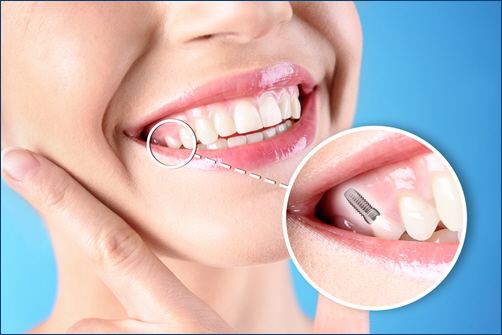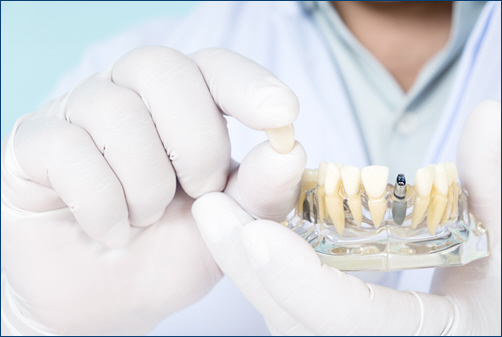How to Care for Your Dental Implants: Tips for Long-Term Success
Dental implants are a popular and effective solution for replacing missing teeth, providing a natural-looking and functional alternative. However, maintaining their longevity and ensuring their success requires diligent care and attention. Proper care of your dental implants is essential for preserving oral health and achieving the best possible results.
Daily Oral Hygiene
- Brushing: Just like natural teeth, dental implants require regular brushing to prevent plaque buildup and maintain gum health. Use a soft-bristled toothbrush and fluoride toothpaste to gently clean the implant and surrounding areas at least twice a day. Be sure to brush the implant as thoroughly as you would your natural teeth.
- Flossing: Daily flossing is crucial for cleaning between the implant and surrounding teeth. Use unwaxed dental floss or interdental brushes to remove plaque and food particles from between the implant and gumline. Flossing helps prevent gum disease and ensures the longevity of your implant.
- Antiseptic Rinses: Incorporating an antiseptic mouth rinse into your routine can help reduce bacteria and plaque buildup around the implant. Consult your dentist for recommendations on an appropriate mouthwash that is safe for use with implants.
 Regular Dental Visits
Regular Dental Visits
- Checkups: Regular dental checkups are essential for monitoring the health of your dental implants. Schedule visits to your dentist every 6 to 12 months to have your implants and overall oral health evaluated. Your dentist will assess the condition of the implant, the surrounding bone, and the gum tissue.
- Professional Cleanings: During your dental visits, your hygienist will perform professional cleanings to remove tartar and plaque that regular brushing and flossing may miss. These cleanings help maintain the health of your gums and the stability of your implant.
Lifestyle and Habits
- Avoiding Hard Foods: Be mindful of your diet to avoid damaging your dental implants. Hard or sticky foods can put excessive stress on the implant and potentially cause damage. Opt for softer foods and cut hard items into smaller pieces to reduce the risk of injury.
- Quit Smoking: Smoking can negatively impact the success of dental implants by affecting gum health and healing. If you smoke, consider quitting or reducing your tobacco use to improve the chances of long-term success with your implants.
Handling Issues Promptly
- Recognize Problems: If you experience discomfort, swelling, or signs of infection around your implant, contact your dentist immediately. Prompt attention to any issues can prevent complications and ensure that your implant remains in optimal condition.
- Addressing Concerns: Regularly inspect your implants for any changes or problems. If you notice any unusual symptoms, such as changes in the fit of the implant or persistent pain, seek professional advice to address the issue before it escalates.
Proper care of dental implants is vital for ensuring their long-term success and maintaining overall oral health. By following a diligent routine of daily brushing and flossing, attending regular dental checkups, adopting healthy habits, and addressing any issues promptly, you can enjoy the benefits of your dental implants for years to come.



